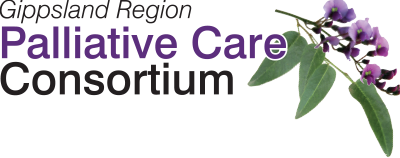
Aboriginal & Torres Strait Islander Peoples
The time surrounding the end of someone’s life is precious and needs to be respected and approached in a safe and responsive, including culturally appropriate manner. Aboriginal and Torres Strait Islander people often have a number of customary practices before, during and after passing. These practices may be sacred and may not be widely discussed outside of the community.
When providing person-centred care to Aboriginal and Torres Strait Islander people, it is important to ask the person who they would like involved in discussions about their health care as they may have decision-makers or spokespersons who should be involved in all discussions and decisions regarding that person’s care. This information must be clearly documented (from Australian Indigenous HealthInfonet)
Useful Websites
-
Australian Indigenous Health Infonet is helping to close the gap by providing the evidence base to inform practice and policy in Aboriginal and Torres Strait Islander health.
Click here to visit the Australian Indigenous Health Infonet website.
-
Caresearch brings together a range of resources and information to help the health care workforce and carers in providing palliative care for Aboriginal and Torres Strait Islander peoples. Culturally safe and responsive care is an essential part of good care.
Click here to visit the Caresearch website.
-
The caring@home for Aboriginal and Torres Strait Islander Families project has developed a suite of tailored resources to support the provision of at-home palliative care symptom management. The Clinic Box includes hard copy resources for health professionals and families, a USB with training videos and practice demonstration kits to teach carers how to give subcutaneous medicines.
Click here to visit the Caring@home website
-
Gwandalan offers interactive resources for frontline staff containing tools and resources to support you in providing person-centred, culturally responsive palliative and end-of-life care.
Click here to visit the Gwandalan website.
-
When Aboriginal and Torres Strait Islander Peoples are diagnosed with a life-limiting illness or are approaching the end of their life, they should be able to access quality palliative and supportive care that is consistent with their wishes, when and where they need it, no matter where they live. Importantly, this care must be culturally safe and responsive, incorporating the social, emotional, and cultural well-being of the person, as well as their family and the community.
To that end, PCA has developed resources to assist the Aboriginal and Torres Strait Islander Peoples, their communities, and health professionals working within communities to ensure approaches and practises are culturally safe and respectful.
Click here the visit the PCA website.
-
Palliative Care Victoria provides resources and tools to support Aboriginal people and Torres Strait Islanders with an illness that is likely to shorten their life. It supports both client and their families to have the best quality of life as they travel on the journey to the Dreaming.
Click here to visit the Palliative Care Victoria website.
-
Aboriginal Palliative Care at VACCHO aims to provide Aboriginal and Torres Strait Islander people access to culturally safe palliative care services in the setting of their choice.
Click here to visit the VACCHO website.
Caring@home - Resources tailer for aboriginal families
-
This tip sheet helps families and carers look after loved ones and includes things to watch for and practical ways to help.
-
Families and carers can use this tip sheet to understand the signs that someone is nearing the end of their life. It includes common signs, changes in behaviour, and what to do after their passing.
Knowing when a person is getting closer to passing
-
Factsheet provide written information and images about why infusion pump, syringe drivers and infusion devices
About infusion pumps (CADD-SOLIS and CADD-SOLIS VIP infusion pumps)
About infusion devices (SurefuserTM+)
-
These tip sheets helps families and carers look after loved ones using a step-by-step approach.
-
The Caring@home Indigenous app supports health professionals providing home-based palliative care to Aboriginal and Torres Strait Islander peoples.
You can read, download or print the suite of tailored, best practice and culturally safe resources for clinical services and health professionals. You can also use them to teach families and carers how to use subcutaneous medicines.
The app can be used offline for more rural and remote areas once you’ve downloaded any resources you want to use.
Click here for more information
Education
-
Gwandalan offers a series of engaging eLearning modules to support frontline staff to deliver culturally responsive palliative care.
Click here to access the Gwandalan Modules
-
IPEPA is a grassroots approach to breaking down the barriers to palliative care for Aboriginal and Torres Strait Islander peoples across Australia by preparing mainstream and Aboriginal and Torres Strait Islander health professionals to deliver high quality, holistic and culturally responsive palliative care to Aboriginal and Torres Strait Islander people and their loved ones.
Click here to visit the IPEPA website.
